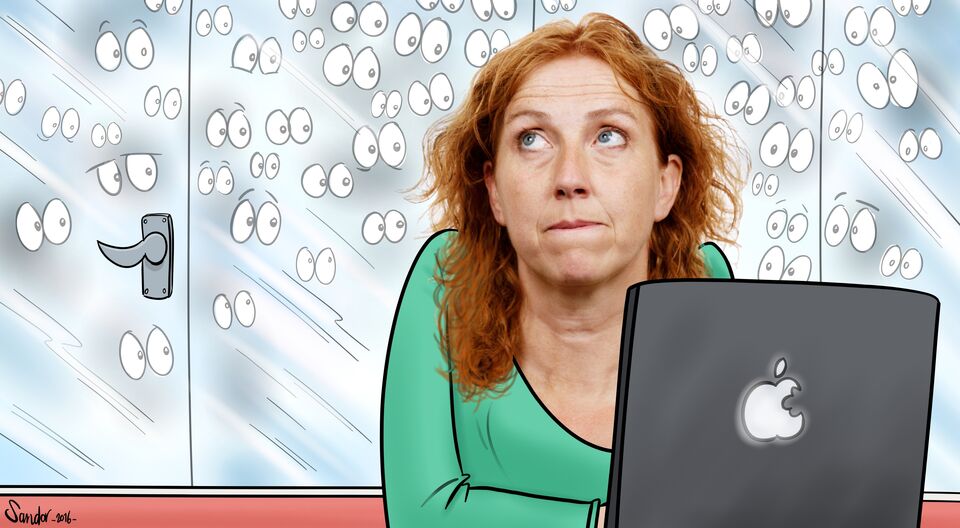Brainmatters | Perfectly (non)transparent?
Transparency is a beautiful word with a positive connotation - think of transparency in management - the pursuit of providing insight into starting points from which decisions are made, and persons involved in this pursuit.
Buildings can be transparent as well. With huge atriums and lots of glazing, allowing daylight to penetrate deep into the building and allowing visitors to survey the area at a glance. However, we should not put the physical property of transparency on a par with the abstract concept and should certainly avoid the trap of seeing it as a means to achieve the other end.
It looks as if someone in Flux has done precisely that. Recently I entered the inviting reception area and enjoyed the space, until my eye was caught by a statement on the glass wall opposite: In a transparent working environment everyone knows what is expected of him or her and what he or she can expect in return.
An uneasy feeling came over me and the year 1984 loomed up in my mind’s eye. Am I the only who reads this statement to be a threat rather than a promise? Afterwards I was struck by the sharp contrast that had been given shape here.
After all, it is precisely in a transparent environment that you do not know what to expect. You have no control over what you see, hear, or perceive otherwise, nor do you have any control over who sees you, who hears you, and who is looking over your shoulder. Concentration – focusing your attention on where it should be and ignoring everything else - is essential for cognitive work and our capacity for this is vulnerable and finite, as we know from extensive research. If you want to do your job properly and get through your working day while maintaining your motivation and a sufficient degree of relaxation, it also proves to be of great importance to know that nobody is watching you. Cover makes it possible to shield yourself effortlessly from unnecessary stimuli and stay in touch with yourself.
While a transparent organization can take away a great deal of dissatisfaction from employees and students, a transparent workplace in which foreign eyes are continuously pricking in your back is actually an environment full of potential distraction and insecurity.
Nevertheless I walked out of the building with a smile on my face. For the irony is that this statement has been printed on a virtually opaque film, intended to restrict the direct view of the employees working behind it. You see, to me that is the beauty of it.
Yvonne de Kort is Professor of Environmental Psychology at Human-Technology Interaction


Discussion